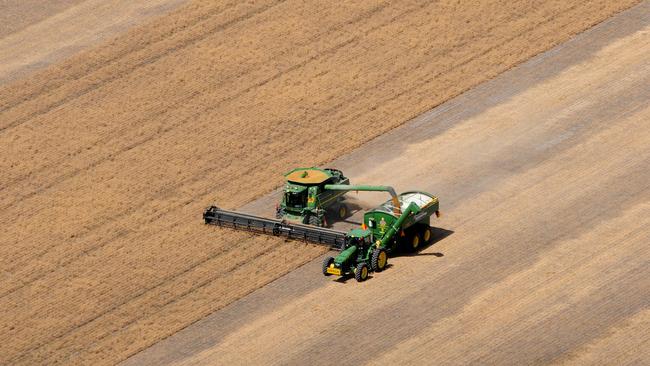Marked decline in agricultural deals predicted as takeovers fall
Law firm Minter Ellison is predicting a “marked decline” in agricultural deals over the next year amid a global fall in takeovers.

Law firm Minter Ellison is predicting a “marked decline” in agricultural deals over the next year amid a global fall in takeovers.
In a new report on the Australian agribusiness sector to be issued on Tuesday, titled Ahead of the Harvest 2020-2022, the law firm says 2019 was a strong year for deals in Australian agriculture with 22 deals worth some $2.6bn — the highest since 2010.
But it warns that the situation has become more difficult this year with the global slowdown in mergers and acquisitions as a result of the COVID-19 pandemic.
“2020 and 2021 are going to be very challenging years for the sector,” it says.
“At the half-way mark there were five completed agribusiness deals and two ongoing.”
The largest deal to be completed so far this year was a domestic transaction involved the demerger of GrainCorp’s international malt business for $915m.
GrainCorp spun it off to form a new company called United Malt which began trading on the ASX earlier this year.
The report says takeover deals in Australia have fallen across the board this year due to the pandemic.
The federal government’s move to have all bids by foreign buyers reviewed by the Foreign Investment Review Board has also significantly slowed foreign deals in recent months.
But the report says that over the longer term Australian agriculture is attracting attention from foreign buyers as well as local superannuation funds.
It says there has been strong interest from Canadian investors in recent years.
Deals have included the $837m purchase of ASX-listed agri-firm Webster Limited, by Canadian Public Sector Pension, one of the largest transactions in the past two years, which was completed earlier this year.
Other recent Canadian investments included the purchase of Australian cotton producer Midkin Aggregation for $308m, and a $632m deal to buy Ruralco, both of which were completed in September last year.
The report says there has also been some interest from European buyers, including the $226m purchase of Mackay Sugar by Germany’s Nordzucker.
It says Asian investors have been relatively absent from the market for Australian agribusiness investments in recent years, with only two Asian-sourced deals done in 2019 worth $146m.
This was dwarfed by the five deals worth a total of $1.8bn that came from North America.
The report follows a survey by Minter Ellison of some 100 foreign and domestic investors on their attitude to Australian agribusiness. Respondents said they expected that investments from the US would play a greater role.
The report says so far the investors from North America have almost exclusively been Canadian.
The survey showed that 72 per cent of investors cited Australia’s Free Trade Agreements with countries including China, Japan, South Korea and the US, and its plans to negotiate further agreements with other countries has been a key attraction for investors in agribusiness.
“In the short term, these opportunities have been paused as global economies suffer the consequences of the COVID 19 pandemic,” Minter Ellison partner Matthew Cunningham said.
“However, longer term, Australia’s negotiations to open more markets in the Asia-Pacific region will be good news for agribusiness investors.”
The report says the commitment to infrastructure investments by state and federal governments in regional areas would continue to be a factor in attracting investment in Australian agribusiness. “The fast-tracking of infrastructure projects by state governments, and the federal government’s $1bn Relief and Recovery Fund to support regions, communities and industry sectors, including agriculture, will contribute to a stable climate for future investment,” Mr Cunningham said.
He said infrastructure, including a stable, reliable internet in regional areas, would help with market distribution for agribusiness products.
The current level of infrastructure in Australia was cited by 65 per cent of respondents as a reason to invest in Australian agribusiness.
The survey showed there had also been strong interest in investing in agribusiness by superannuation funds within Australia.
“Domestic investors are tapped to lead agribusiness mergers and acquisitions and investment in the short term,” the report says.
“But foreign funds and corporations will also be key players as competition in the market heats up in the coming years.”







To join the conversation, please log in. Don't have an account? Register
Join the conversation, you are commenting as Logout